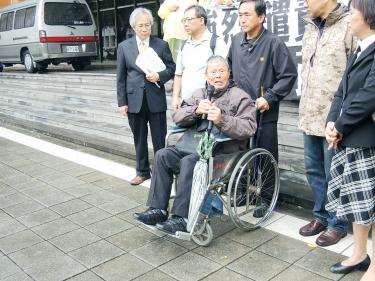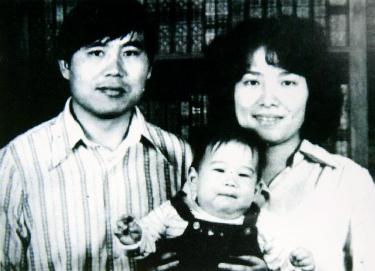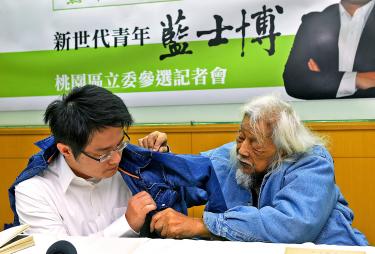Activist who defended Sunflower protesters dies at 76
By Lii Wen / Staff reporter
Pro-independence activist Chou Jung-tsung (周榮宗), 76, died from cirrhosis on Saturday, two days before the one-year anniversary of the March 23 Executive Yuan occupation last year.
Chou, a long-term supporter of Taiwanese independence and social movements, participated in the Sunflower movement protests in March and early April last year, in which tens of thousands of protesters laid siege to the Legislative Yuan compound and surrounding streets to voice their opposition to a proposed trade pact with China.
Chou received fractured ribs and an abdominal hemorrhage after then-premier Jiang Yi-huah (江宜樺) ordered officers to remove protesters from the Executive Yuan early on March 24.
At a news conference on March 31 last year, Chou said he was beaten with batons in the compound by police officers and then blasted with a water cannon while he lay on the street.
Aided by human rights groups, Chou filed a private prosecution on charges of attempted murder against Jiang, President Ma Ying-jeou (馬英九), former National Police Agency director Wang Cho-chun (王卓鈞) and former Taipei Zhongzheng First Police Precinct Chief Fang Yang-ning (方仰寧).
A Facebook post by the pro-independence group Taiwan Referendum Alliance said that Chou learned about his condition after he received medical attention for his injuries.
“When the March 18 [Sunflower] movement erupted, [Chou] defended Taiwan defiantly with his flesh and bones to protect students who were screaming and howling throughout the night,” the post said.
A photograph of Chou sitting on the pavement while being sprayed with water cannons was on display at an open-air photography exhibition outside the Legislative Yuan, which ended last night.



